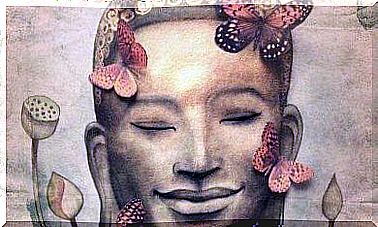Why Do We Feel Resentment?

Anger is an emotion that does not allow us to forget a situation that occurred and for which we feel hurt or hurt. It is because of this pain that we try to return, in some way, the pain they caused us, waiting for the best time to do so. Over time, rancor only makes us uncomfortable.
Why do we prolong our malaise?
Anger is, in reality, an unresolved emotion, due to a situation that caused us to feel unwell and that we did not face, but which we silenced and kept, thus prolonging our unease indefinitely.
The rancor remains and, with it, the suffering, since there is a resentment inside us that does not allow us to resolve the situation and, with that, we keep our memories of pain.
What is resentment?
Resentment is the anteroom of resentment. It is an emotion of pain, irritation and anger, faced with a situation experienced or a person who caused us harm.
Being resentful means not having forgotten what happened and therefore remaining with the pain, the irritation and the anger, as if everything had just happened.
What consequences does resentment bring with it?
Resentment prevents us from living in the present, as we always carry the burden of what happened, as well as the presence of the generated emotions.
Being resentful is a burden that cannot be moved forward, as there is a blockage to be resolved that will prevent us from looking ahead. This feeling will make us avoid situations in the present, due to the memory and pain in relation to what happened in the past, that is, it prevents us from enjoying the current moment.
What happens when I feel bitter?
Anger does not allow us to “turn the page”, as it waits for the moment to pay off its pain.
Therefore, the attitudes of the spiteful person will be aimed at restoring their balance, making the “culprit” pay for their suffering. It is an emotion that promotes shame, hostility, aggression, as well as hatred for the person you hold responsible for the suffering or harm felt.
Who suffers?
It is important to be aware that the only person who is suffering from what has happened is the grudge himself, and that both resentment and resentment do nothing more than prolong the suffering, without it being resolved.

Is revenge the solution to rancor?
The reality is that time distances us from that situation and the person involved in it, but the chances are that we never completely resolve our grudge.
Even if there was the possibility of revenge, this would never be the solution to so much accumulated malaise, as the consequences or later conflict to pay back the damage will never make us feel good. Remember: the pain of others never soothed our own pain.
Therefore, revenge is not the way that will be the solution to our suffering.
How to get rid of rancor and resentment?
First, it would be most convenient to resolve the situation when it occurs, to express ourselves and feel that we are respected at the right time. Thus, we would not feel resentful, as we would have faced the situation and, therefore, there will be neither the rancor nor everything that it causes.
If we are already living with resentment and resentment, the way to get rid of them is to accept what has happened and respect the person with whom we are living the painful situation.
After this work of acceptance and respect, we would only have to decide which relationship we would maintain with this person , since respect does not mean sharing their way of doing things and, therefore, we do not have to go back to living a situation similar to the one experienced previously.
With this, we will feel the release of suffering, and the unloading of an unnecessary weight, which will allow us to live the present in a lighter and happier way.









